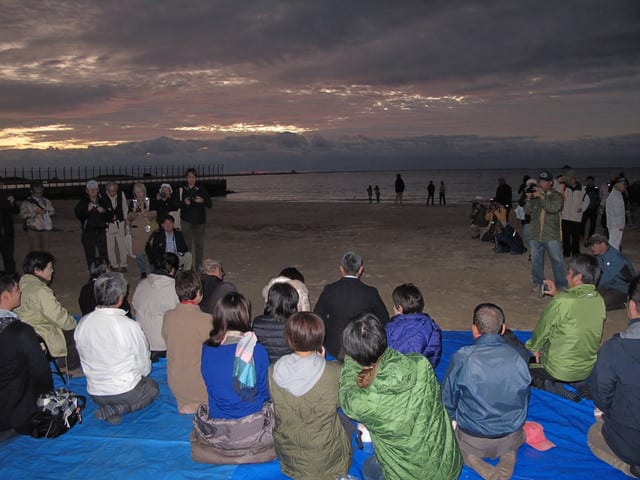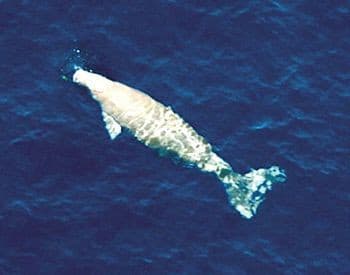Stop the Construction of U.S. Military Base in Henoko!
The Coalition Against U.S. Foreign Military Bases supports the democratic will of the Okinawan people and opposes U.S. military base construction at Henoko.
Memory of the death and destruction of the Battle of Okinawa is deep and still present today, as the Japanese central government, in cooperation with the Pentagon, attempts to build yet another U.S. airstrip, one which would destroy pristine Oura Bay in Henoko, despite opposition from some 80 percent of the Okinawan people and their governor, Denny Tamaki.
Ignoring the people’s will and international opposition, including from many U.S. military veterans, the Japanese government began pouring soil and sand into Oura Bay before noon on December 14 in Nago’s Henoko district. The U.S. Navy claims the construction is necessary to replace U.S. Marine Corps Air Station Futenma, often called “the most dangerous airbase in the world.” That hugely unpopular base, which the U.S. has been promising to shut down since 1996, is currently in the densely populated residential area of Ginowan.
The airstrip will endanger the people, despoil a pristine environment and destroy endangered sea life, including the last few dugong (a marine mammal related to the manatee), which, according to Okinawan mythology, “has divine status—a messenger of the sea gods,” says Hideki Yoshikawa, secretariat of the nongovernment organization Citizens’ Network for Biodiversity in Okinawa. “Today, however, there are only between three and 10 alive.” The peace movement on Okinawa is remarkably diverse, like nature itself, but it is united by a common philosophy: a belief in nuchi du takara: all life is precious.
The excuse that the base is needed for defense is a thin pretext. Satoko Oka Norimatsu, co-author of Resistant Islands: Okinawa Confronts Japan and the United States, wrote, “The people there know that the military only attracts violence and death, instead of peace and stability.” As Hiroji Yamashiro, the charismatic and popular leader of the anti-base movement, said to people gathering at Henoko, “The American military stole our land to build bases then they used these bases to wage wars around the world. If they build a new base here, they will use it to fight new wars [but] if we win here, we can send a message of peace around the world.”
This is a crisis of democracy, as the U.S. military and the right-wing Japanese government under Shinzó Abe are trampling on the democratic will of the people of Okinawa in order to build yet another base. Okinawa Gov. Denny Tamaki said, “I cannot help feeling strong resentment toward the work being carried out in defiance of the prefectural residents’ will.”
The Okinawan people and their prefectural government have done everything they can to prevent the base in Henoko being built as a replacement—and will continue their efforts to stop it if it begins. The vigil at the gate has continued for more than 5,000 days and the actual sit-in blocking construction vehicles, which has been joined by many internationals, has gone on more than 1,000.
The people of Okinawa have experienced 73 years of occupation, the taking of precious farming land, and now some 30 U.S. military facilities and 25,000 military personel on this small island. They are fed up with the pollution, noise, violent crime and accidents caused by the U.S. military and do not want any new bases built in the prefecture.
We call upon all people-loving people to join the people of Okinawa in opposing the construction of the U.S. Military Base in Henoko. We urge you to sign the people’s petition to the White House demanding that the construction be stopped until a democratic referendum can be held in Okinawa.
To sign the petition please
CLICK HERE.
Coalition Against U.S. Foreign Military Bases













